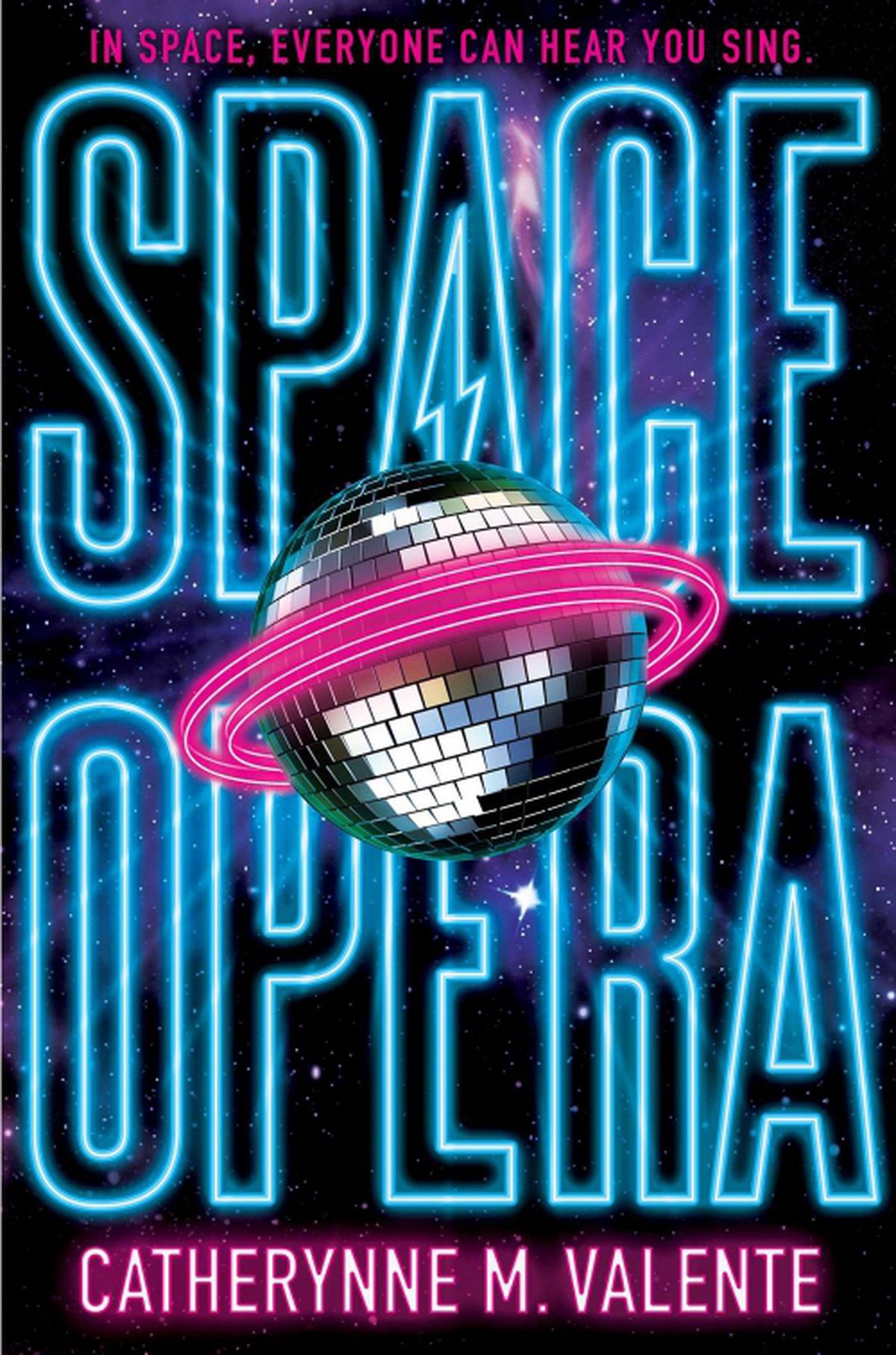Many authors attempt comedy in science fiction, but few pull it off. Alongside very funny works like John Scalzi’s Redshirts and Terry Pratchett’s entire Discworld series, the pinnacle of hilarious science fiction is Douglas Adams’ The Hitchhiker’s Guide to the Galaxy, about the misadventures of Arthur Dent as he travels across the universe. But Catherynne M. Valente’s new novel Space Opera might give it a run for its money, because it’s one of the funniest books that I’ve ever read.
Space Opera’s title is a pun. Valente said recently that the story came out of a dare on Twitter after a conversation about Eurovision, and the novel lovingly skewers long-standing science fiction tropes, driving home humor with every single sentence. In Space Opera, humanity is living blissfully unaware of alien life, until extraterrestrials appear and invite them into an advanced intergalactic civilization. But there’s a catch: humans have to prove their sentience in a talent show called the Megagalactic Grand Prix, instituted after a galaxy-wide conflict known as The Sentience Wars. If Earth comes in dead last, humanity will be wiped out, and the biosphere reseeded so the planet can try again later.

The alien envoy, a bird-like creature with an unpronounceable name who goes by Esca, suggests some possible human contenders — including Yoko Ono; the Spice Girls; Skrillex; Kraftwerk; and fictional singer Brian Slade from the film Velvet Goldmine. But ultimately, the honor goes to a defunct glam rock band called Decibel Jones and the Absolute Zeros, who scored a single hit album called Spacetrumpet in the mid-2000s. Decibel (real name Danesh Jalo) and bandmate Omar Çalışkan (aka Oort St. Ultraviolet) have been estranged for years, following the death of their third bandmate, Mira Wonderful Star. But they reunite to save the planet, working through their insecurities as they’re rocketed off to compete in the Grand Prix.
Valente has forged a career by deconstructing fantasy and science fiction tropes in books like The Refrigerator Monologues and The Girl Who Circumnavigated Fairyland in a Ship of Her Own Making. Here, she suggests that ridiculous-sounding ideas like a Space Eurovision aren’t inherently more absurd than “realistic” sci-fi conventions like hyperspace drives or genocidal robots. (Actually, the aliens explain, it’s more practical to settle disputes with a talent show than an intergalactic war.) Where Douglas Adams projected the comedic incompetence of impersonal bureaucracies into outer space, Valente introduces whimsical weirdness like a multidimensional panda bear called a Quantum-Tufted Domesticated Wormhole, which is the only feasible means of interstellar travel.
But the real selling point is Valente’s elaborate prose, dense with description and metaphors. I’ve bounced off this style in some of her books, but here it works beautifully, with sentences like:
“Once upon a time on a small, watery, excitable planet called Earth, in a small, watery, excitable country called Italy, a soft-spoken, rather nice-looking gentleman by the name of Enrico Fermi was born into a family so overprotective that he felt compelled to invent the atomic bomb.”
The style takes some getting used to, but once you get the rhythm of her writing, everything clicks into place. Each of Valente’s sentences could be an entire story, and I found myself engrossed in each one, visualizing her chaotic, bizarre, and delightful universe. This beautiful writing adds to the humor as she recounts implausible and fantastical battles in breathless paragraph-long sentences just as convoluted as the conflicts they’re describing, or the surreal bands of the Grand Prix:
“Being a group intelligence comprised of hot pink algae genetically fused with nanocomputational spores, the Sziv never formed rock bands per se. They sent the same supergroup to the Grand Prix every year, some 60 percent of their species, decanted into artful vases and simply called Us. They sang by pheromone, a crescendo of infection hormones that maddened the mating instincts of every species in the Dirty Ruuutu Flophouse and Grill — a vast, glittering, state-of-the-art performance area seating over one hundred thousand — until the slightest whisper sounded like a techno-erotic laser light show of the soul, at which point Us spilled out of their vases in an undulating rosy wave, spun up in to a towering spiral of velvet sparkling life, and sang an ancient Sziv folk ballad called ‘Love Is Easy When You’re A Hive Mind’ coupled with a thumping, thrusting, subwoofer-slaughtering beat, dispersing on the downbeat, slamming back into their magenta spire on the upbeat, and bringing the house all the way down.”
Yes, the intergalactic talent show that determines the fate of entire worlds is held in a place called the Dirty Ruuutu Flophouse and Grill.
I enjoyed every minute I spent reading Space Opera — first for the story of Decibel Jones and the Absolute Zeros and their performance to save Earth, and then for the fantastic worlds that Valente put to paper.
https://www.theverge.com/2018/4/14/17233606/space-opera-catheryenne-valente-science-fiction-humor-book-review

